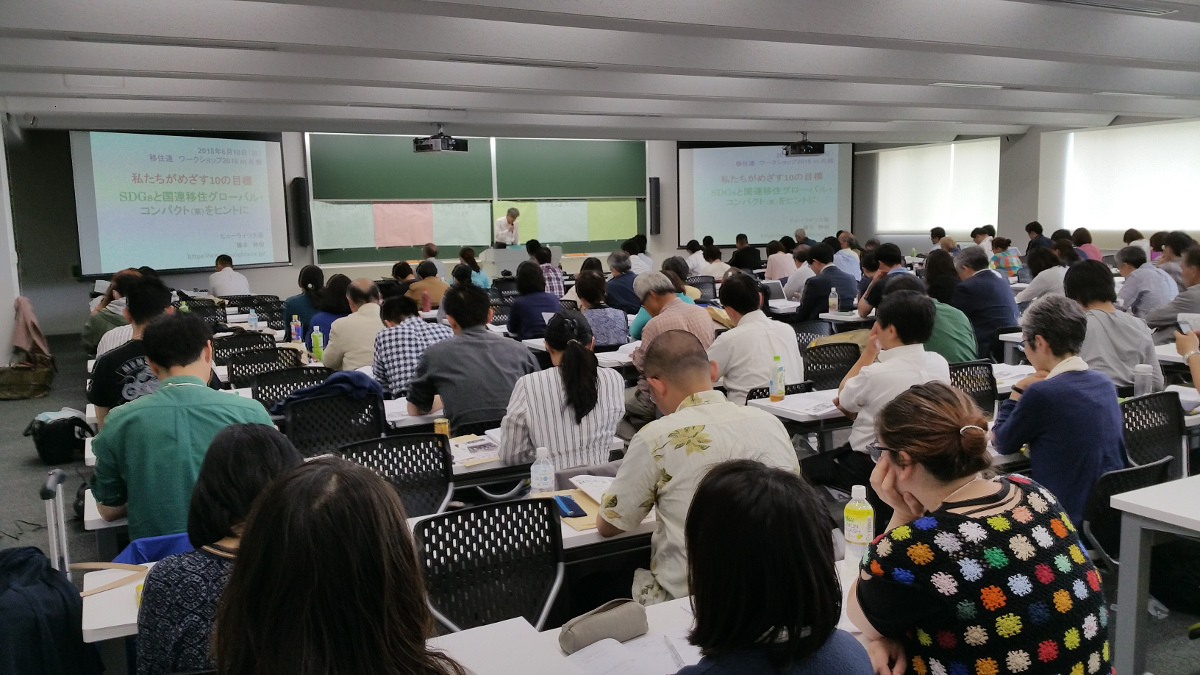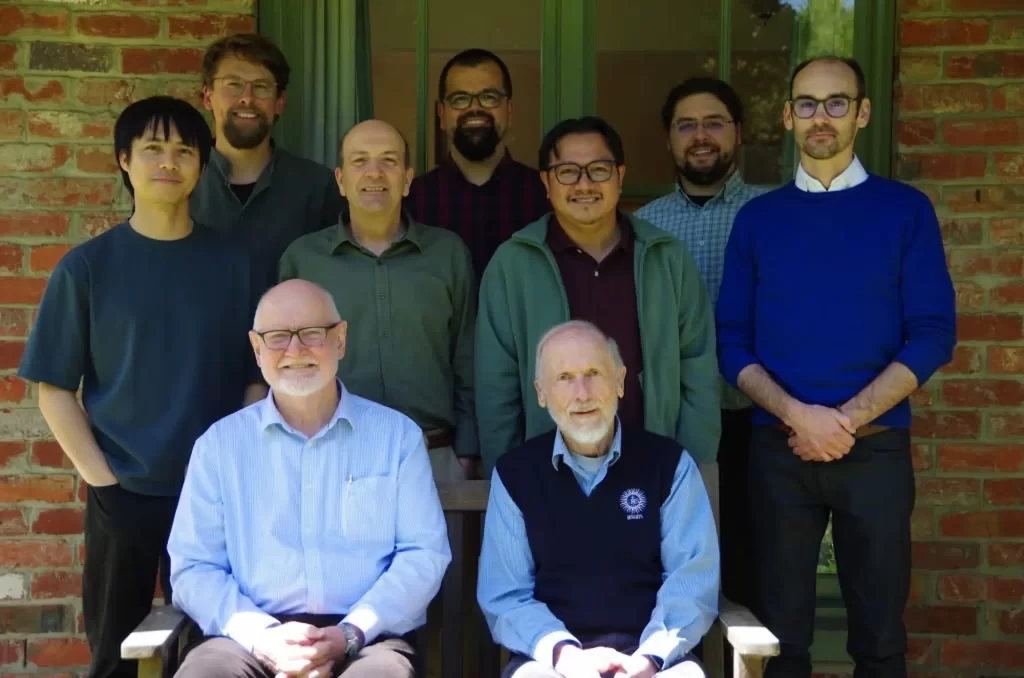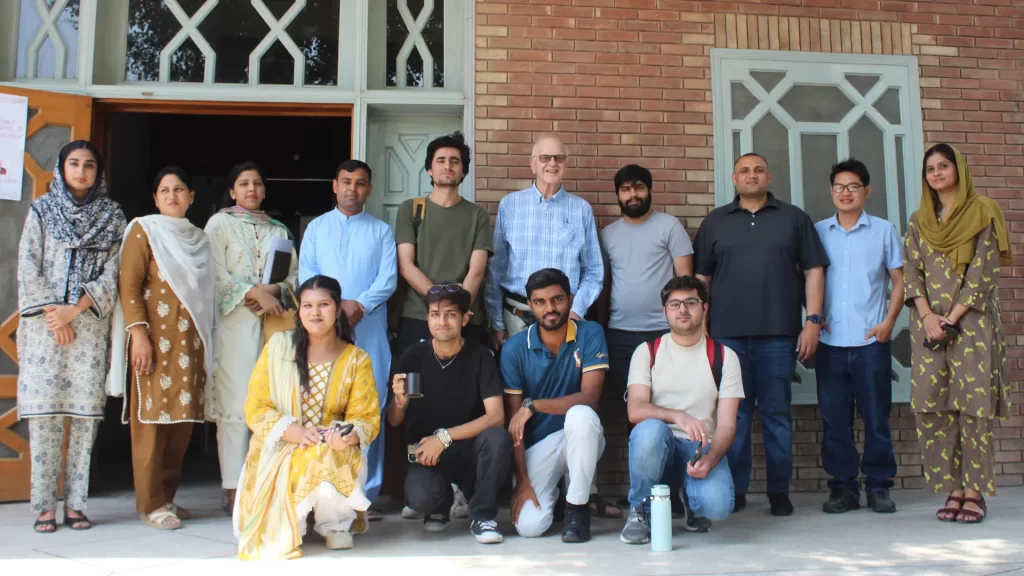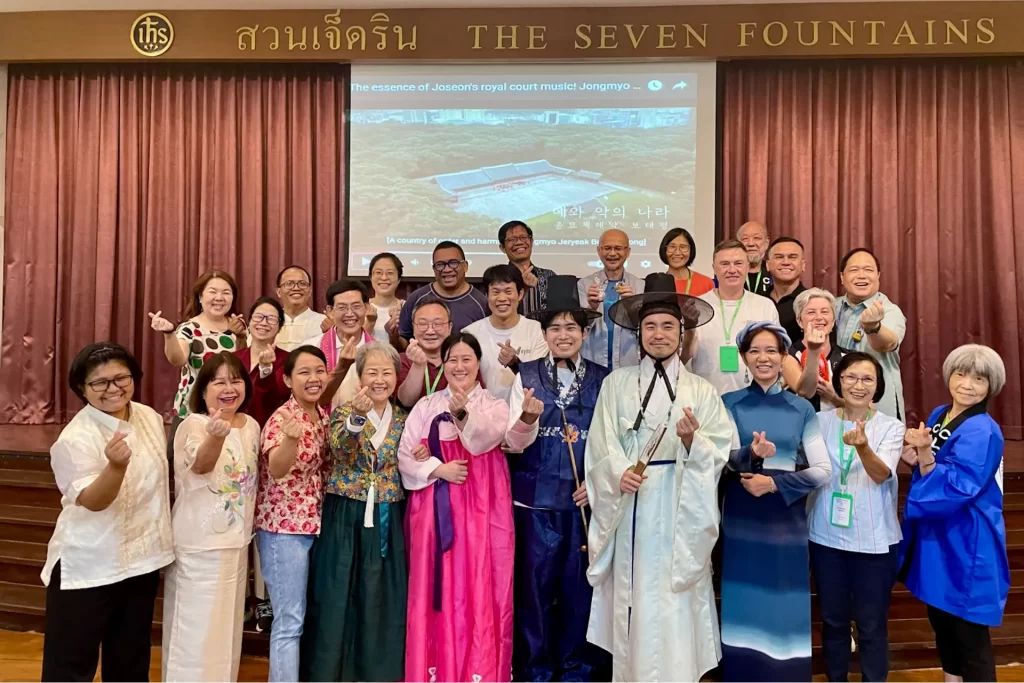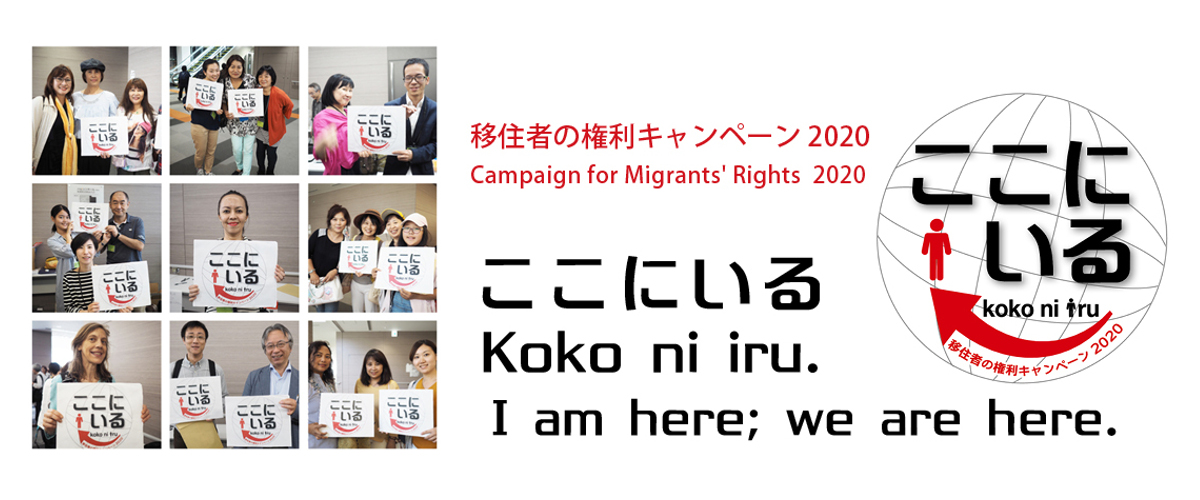
Fr Ando Isamu SJ, Head of the Jesuit Social Center Migrant Desk, and two other members of the team were among the 150 delegates who gathered in Hokkaido on June 9 and 10 for the convention organised by the Solidarity with Migrants in Japan (SJM) network.
“The network believes that the concept of unity in diversity should not just be a slogan of the games. It is a goal that Japan needs to aim for, to become a country where society, institutions and policies respect and guarantee the rights and dignity of migrants and people with diverse roots,” said Fr Isamu.
Hence the SMJ Network is working to design a citizens’ policy for migrants, and this convention was part of the groundwork. There was a general workshop guided by a group of specialists, lawyers, labour union leaders, politicians and university professors, and discussions in eight committees. The Jesuit Social Center delegation joined the committees on immigration policy, racial discrimination and technical training.
Fr Isamu reports that important issues surfaced from the discussions but at the core is the lack of an immigration policy that covers migrant workers.
Japan badly needs workers in order to survive and remain at its high level of industrialisation but Fr Isamu says migrant workers are recruited as cheap, temporary labour and work in restrictive conditions.
“Workers have practically no rights and if they complain to the companies where they work, their visas are in danger. They have to remain with the companies they work for, because all complaints can endanger their stay in the country. Immigration equals control,” he expanded.
Since Japan does not officially accept simple, unskilled workers, it has established a system that purports to give technical training to foreign workers to provide them with skills needed in their own countries. Fr Isamu says this system “should be radically reformed or, better yet, suspended” because the skills they are learning are of little use in their home context. As an example, he refers to the photographs of Vietnamese girls milking cows using advanced machinery in a Sapporo University professor’s presentation about the contributions of foreign workers in Hokkaido.
“I know from experience that Vietnam is a country not accustomed to drinking milk and does not have cow ranches. The Vietnamese workers are supporting the milk industry in Hokkaido and are getting paid for that, but it is ironic that the skills they have obtained will be of no use back home in their rural areas,” he said.
Returning to Tokyo after the convention, Fr Isamu is hopeful that the situation of foreign workers and trainees will improve. The network is becoming stronger at the national level, there are many young people dedicated to fighting for the rights of foreign workers, and the active participation of many delegates provided fresh approaches towards developing migrant policies that can pressure the government to make immigration legislation more humane.
He is however somewhat disappointed at the lack of an “Asian vision”.
“All discussions were heavily centred on Japan. Certainly Japan is ‘hungry’ for young foreign workers. Poverty, especially in the rural regions of Asian countries and the lack of freedom were not in the scope of the discussions although most foreign workers come from there. We also did not discuss the impact of globalisation.”
He also lamented the fact that the discussion of migrants’ rights did not go beyond how it is covered in the UN Declarations and Japan’s Constitution.
“My impression was that there were many Christians among the delegates, but religion was not even mentioned. Many churches work with migrants but their stories remain untold,” he said.

